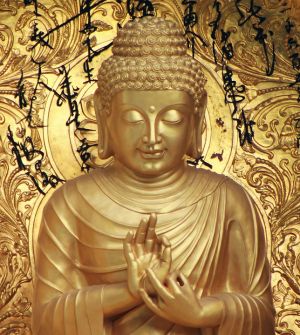Factors Involved in Transgressing Tantric Vows
General Presentation
The Four Binding Factors
According to the Gelug master, Kedrub Norzang Gyatso (mKhas-grub Nor-bzang rgya-mtsho) in A Lamp to Illuminate the Closely Bonding Practices (Dam-tshig gsal-ba’i sgron-me), except for the fifth root tantric vow,
giving up aspiring bodhichitta, a downfall from the tantric vows (gsang-sngags-kyi rtsa-ltung), like a downfall from the root bodhisattva vows, requires transgressing one of the fourteen root vows with the four binding factors (kun-dkris bzhi) being complete.
These factors must be held and maintained from the moment immediately after developing the motivation to break the vow, up until the moment right after completing the act of transgression. In such cases, we lose our tantric vows; otherwise, we merely weaken them.
See: Common Root Tantric Vows
The four binding factors derive from the Ethical Self-discipline Chapter (Tshul-khrims-gyi le’u) of Asanga’s Bodhisattva Stages of Mind (Byang-chub sems-dpa’i sa, Skt. Bodhisattvabhumi).
They are:
not regarding the negative action as detrimental,
seeing only advantages to it,
and undertaking the action with no regrets,
having been in the habit of committing the transgression before,
having no wish or intention to refrain now or in the future from repeating it,
delighting in the negative action and undertaking it with joy,
having no moral self-dignity or care for how our actions reflect on others,
and thus having no intention of repairing the damage we are doing to ourselves and to them.
There are three levels of being bound by the binding factors. Only in the first case do we lose our tantric vows:
If all four binding factors are present when transgressing a root tantric vow, it is a great bind (kun-dkris chen-po).
If not regarding the negative action as detrimental is present, but not all of the other three factors, it is an intermediate bind (kun-dkris ‘bring).
If not regarding the negative action as detrimental is not present – in others words, if one does regard the transgression as detrimental – but any or all of the other binding factors are present, it is a small bind (kun-dkris chung-ngu).
Even if the four binding factors are present when transgressing one of the eight thick actions (sbom-po, secondary tantric vows), it is not a downfall and we do not lose our tantric vows.
Factors Needed for the Karmic Results to Be the Fullest
In addition, as with the ten destructive actions and the bodhisattva vows, for the karmic results to be the fullest, there must be complete:
a basis for the action, namely an object against whom or which the action is directed,
an action actually committed,
a finale that the action reaches.
Elsewhere, added to these three as what must also be complete are:
a person who commits the action, namely a holder of untransgressed tantric vows,
a correct discernment, namely of the object against whom or which the action is directed,
an attitude containing the four binding factors.
See: The Main Points about Karma
Factors Causing the Transgression of a Vow
Several factors may cause us to transgress our vows.
The Dakini Vow Tantra (mKha’-‘gro-ma’i sdom-pa’i rgyud, Skt. Dakinisamvara Tantra) lists:
not caring and being careless,
being overwhelmed by disturbing emotions,
lack of respect,
weak mindfulness.
Purification Methods
The procedures for purifying ourselves of the negative force built up by a transgression and subsequent loss of our tantric vows are, in general, to apply the four opponent forces (stobs-bzhi), after openly admitting our transgression.
These forces are also applied for strengthening our tantric vows if we have weakened them:
the firm decision not to repeat the transgression,
reaffirming our foundation, namely safe direction (refuge) and the bodhichitta aim,
application of counteracting opponent forces, such as repetition of the hundred-syllable mantra of Vajrasattva or the mantra of Samayavajra (Dam-tshig rdo-rje).
If we have lost our tantric vows by having incurred a downfall, the counteracting opponent forces include:
one hundred thousand repetitions of the hundred-syllable mantra of Vajrasattva and then retaking the tantric vows at another empowerment, retaking the vows as part of performing the self-initiation (bdag-‘jug) of the Buddha-form (yi-dam) of our practice.
We may only take the self-initiation if we have previously completed the serviceability retreat (las-rung) of that Buddha-form, during which we have repeated the relevant mantra at least a hundred thousand times and followed this by the appropriate fire-puja (sbying-sreg).
